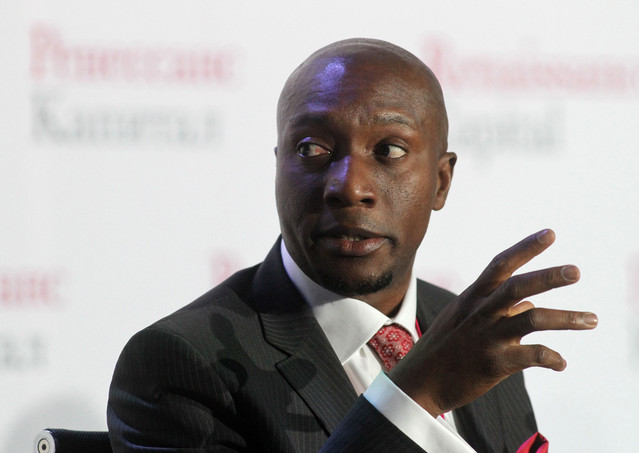UBA Creates New Management Layer
In order to streamline its operations and be better positioned for the emerging financial environment, United Bank for Africa Plc, has restructured its operations through the creation of new directorates and the redeployment of some of its executive directors, THISDAY can authoritatively report.
Under the new arrangement, the portfolio of Deputy Managing Director, South, which was headed by Mr. Victor Osadolor has been divided into two directorates, comprising Lagos/South-west as a stand-alone directorate and South-south/South-east as another directorate, while the former northern directorate, which was headed by Deputy Managing Director, North, Mrs. Faith Tuedor-Mathews, has been split into two directorates with Abuja as a distinct directorate from another one created for the north alone.
According to sources close to the bank, its wholesale banking directorate has also been split into two, such that one caters to non-energy corporates, while the other wholesale banking directorate will focus on oil and gas and possibly the power sector.
Also, the finance and risk directorate has been split into two, with finance as a separate directorate from risk management.
Following the restructuring, former Deputy Managing Director South, Mr. Victor Osadolor is now the Deputy Managing Director, South-east/South-south, and will operate from Port Harcourt to oversee the operations of the new directorate, while Mr. Rasheed Olaoluwa, formerly executive director in charge of banking operations in Africa is now the executive director in charge of Lagos/South-west.
Mrs. Tuedor-Mathews has now assumed the position of Deputy Managing Director, Abuja, while an executive director has been redeployed to Kaduna to be in charge of the northern directorate.
THISDAY further learnt that some of the new directorates that have been created will be headed by group directors who are said not to be on the same pedestal with executive directors. UBA currently has eight directors in the executive cadre, that include its two deputy managing directors.
In addition to the restructuring, UBA penultimate week right-sized its workforce by a small margin when it let go about 400 of its staff across board. The bank at the same time promoted over 800 staff across all cadres – junior, middle and senior management.
Confirming the development, sources at UBA said, “There was nothing untoward about the decision to let go approximately 400 staff, as every year it is our policy to exit the bottom five percent underachievers.”
Another source confirmed that five percent of the bank’s workforce translates to about 1,400 people. “But we will only let go 400 people, an indication that there is nothing untoward about the rationalisation exercise.”
The bank’s 2010 result which was released on Thursday, however, triggered mixed reactions among industry analysts and the market.
According to the financial year ending 2010, the bank’s gross earnings for 2010 was put at N185.18 billion, compared to N244.11 billion in the previous year.
Profit before tax and extraordinary items for 2010 stood at N16.54 billion as against N13.66 billion recorded in 2009.
The result, which was made public by the Nigerian Stock Exchange also showed that UBA’s exceptional items for the year under review were put at N12.66 billion, compared to N7.02 billion reported by the bank in the corresponding period of the previous year.
According to financial analysts, who had spoken to the management of UBA, some of these exceptional items include write downs for legacy debts of Continental Trust Bank, which gulped N7 billion, among other non-performing loans.
Continental Trust Bank was acquired by Standard Trust Bank pre-consolidation, but its legacy assets and liabilities were transferred to UBA during the merger of STB and UBA in 2005.
In the financials released by UBA, the bank declared a profit before tax of N3.87 billion in 2010 against N6.3 billion in 2009, while its profit after tax for 2010 fell to N598 million compared to N2.37 billion reported in 2009.
Reacting to the bank’s full year result for last year, Head of Research, Afrinvest, Mr. Victor Ndukaba, said in his initial assessment that UBA’s result failed to meet market expectations, but added that it was a bit difficult to state exactly what affected the performance of the bank considering that the stock exchange had not put the full report in the public domain.
He said his organisation was billed to meet with the management of the bank at the weekend to analyse the figures.
Source : Thisday







